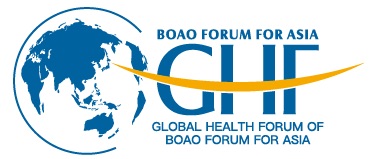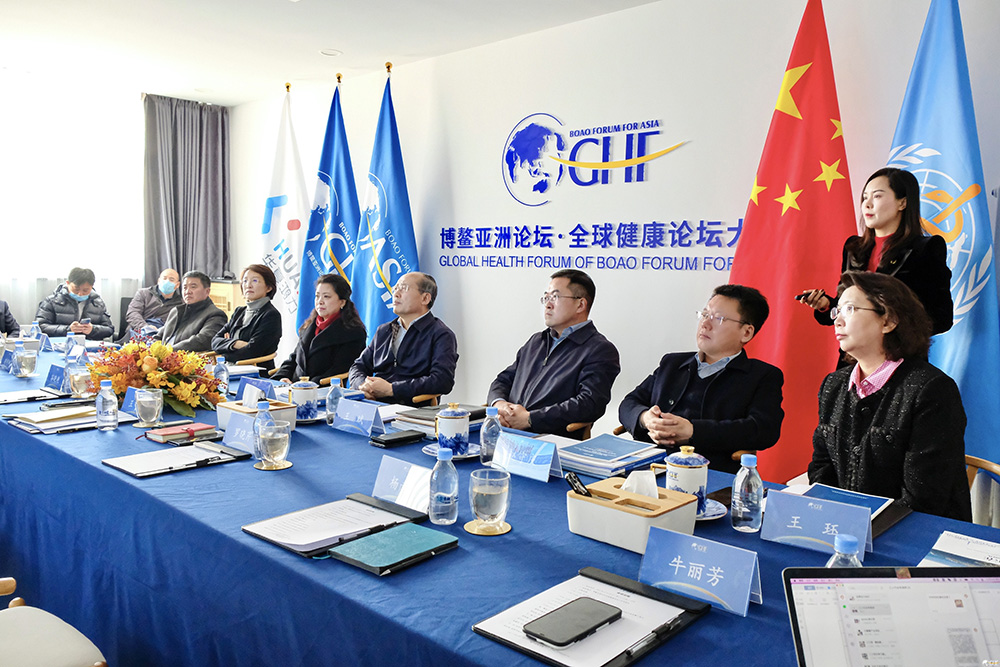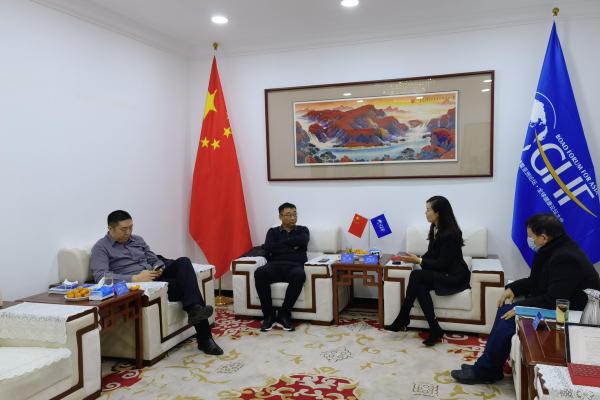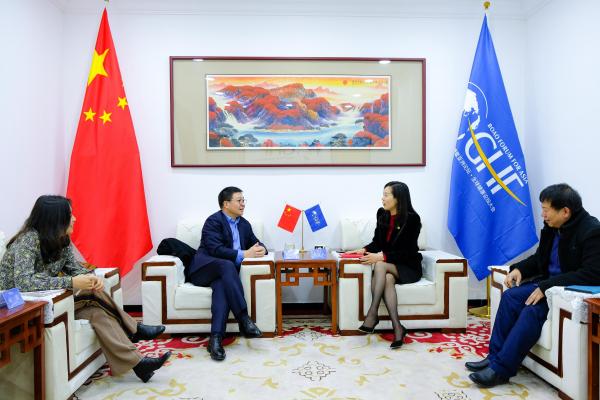
French designers have developed an “easy-to-install, clean and disinfect” protective cover designed to protect people when eating in restaurants, bars, hotels and other public places during the epidemic. The picture shows a restaurant in Paris, France, where customers dined inside a protective cover recently. (Xinhua News Agency)
The new coronary pneumonia outbreak is still spreading rapidly worldwide. Experts point out that the epidemic will continue for some time before a vaccine is available. In the face of huge challenges, WHO stressed that all parties should work together to overcome the epidemic.
The latest data released by the World Health Organization shows that as of 10:00 CET on June 30 (16:00 Beijing time on June 30), the number of confirmed cases of new coronary pneumonia outside China reached 10,100,147. This comes a day after WHO confirmed that the number of confirmed cases of new coronary pneumonia worldwide has exceeded 10 million. Experts from many countries believe that the confirmed cases have exceeded "10 million", highlighting the importance of global solidarity in the fight against the disease.
"Globally, the spread of the epidemic is accelerating."
The new cases of the epidemic have reached a record high, with more than 189,000 new cases diagnosed worldwide on June 28, the highest number of new cases in a single day since the epidemic began, and more than 150,000 new cases each day from June 25 to 29. According to WHO data, nearly 4 million new confirmed cases have been diagnosed globally in the past month, and more than 1 million new cases have been diagnosed each week recently.
"While some countries are making progress in containing the epidemic, the spread is accelerating globally." Speaking at a regular press conference on June 29, WHO Director-General Tedros Adhanom Ghebreyesus said the new coronavirus pandemic is a test of the global political, economic, cultural and social infrastructure, and countries will continue to live with the virus in the coming months.
Currently, regionally, the Americas are the region with the most confirmed cases, accounting for half of global cases, more than 5.13 million, and more than 240,000 deaths, also accounting for about half of global deaths. The Americas are also the region with the most new cases, with more than half of the recent new confirmed cases worldwide. Europe, with 2.69 million confirmed cases and nearly 200,000 deaths, is the second following the Americas. In addition, the Eastern Mediterranean region and Southeast Asia also saw a large number of new cases.
From a perspective of countries, the United States has more than 2.53 million confirmed cases and 126,000 deaths, both ranking first in the world. Brazil is the next largest country with more than 1.3 million confirmed cases. In addition, Russia and India have more than 500,000 confirmed cases, and the United Kingdom, Peru, Chile, Spain, Italy, Iran and other countries have more than 200,000 cases.
Tedros said that many countries have taken unprecedented preventive and control measures to curb the spread of the virus, but still have not completely eliminated the virus. After the economic and social "reboot" of some countries, the epidemic rebounded and cases increased, and most people are still susceptible, and the epidemic has not yet bottomed out.
According to Reuters, the impact of the new coronary pneumonia epidemic on people's lives could last a year or more until a vaccine is available. Some countries are experiencing a resurgence of the outbreak and governments are reinstating some of the restrictions. Changes could recur in the coming months and in 2021.
"Full use of existing prevention and control tools can contain the spread of the outbreak."
WHO said the rapid and life-threatening spread of the new coronavirus is so aggressive that all-out mobilization and comprehensive measures should be taken to break the chain of virus transmission.
"In the long term, a vaccine is a powerful tool to tackle the new coronavirus outbreak, but for now it is important to focus on saving lives. The experience of many countries shows that the full use of existing prevention and control tools can contain the spread of the outbreak." Tedros said.
On the current prevention and control of the outbreak, WHO proposed five major prevention and control measures. The first is to increase community prevention and control, maintain social distance, wash hands and wear masks regularly, and rely on reliable scientific prevention and control information. The second is to increase screening and testing, tracking and isolation of close contacts. Breaking the virus transmission chain and curbing the spread of the virus is the most effective way to contain the outbreak at this time. The third is early detection and treatment, making every effort to save lives, with particular attention to high-risk groups such as the elderly. The fourth is to increase scientific research and develop effective tools for treatment and epidemic prevention. The fifth is to increase political commitment and work together to respond to the epidemic.
Based on the situation of the epidemic and with reference to the latest research results, WHO has issued several versions of technical guidelines with detailed technical details on wearing masks, school health safety, resumption of work and production, etc. Maria van Kerckhove, technical head of WHO's health emergency program, said WHO maintains close contact with frontline researchers and health care workers around the world, to include the latest research and findings into WHO's technical guidelines, "Countries that have taken preventive and control measures in strict accordance with WHO guidelines have largely succeeded in containing the epidemic ".
Many countries have taken strict preventive and control measures, which have effectively contained the epidemic. Many countries saw a rebound of the epidemic to varying degrees after the lifting of restrictive measures. In response, WHO said countries should be cautious about relaxing restrictive measures, and stay prepared for public health, and once an outbreak is detected, it should be dealt with promptly to contain the outbreak and minimize its economic and social impact.
"The 'political virus' should be isolated and we should work together to fight against a common enemy"
WHO on June 29 again released an updated outbreak response timeline to inform the public of WHO's outbreak response efforts over the past six months and pledged to continue to do its utmost to serve countries. WHO reiterated its call not to politicize the new coronavirus outbreak, emphasizing that a united response is the most important means of overcoming the outbreak.
Tedros stressed that without solidarity at the national and international levels, the virus would spread even faster. He warned that the worst is yet to come and that the world must come together and unite to fight this dangerous virus.
To unite efforts, accelerate the development, production and equitable distribution of the new coronavirus vaccine and treatment tools, WHO has launched an international collaborative initiative " Pneumonia kit 2020". WHO said it will provide 500 million test kits and 245 million treatment drugs to low- and middle-income countries by mid-2021, and hopes to provide 2 billion vaccines to the world by the end of 2021, half of which will be used in low- and middle-income countries.
Since the outbreak, the United Nations and other international organizations and leaders of many governments have continued to stress the importance of solidarity in the fight against the epidemic, calling for coordination and cooperation in drug and vaccine research and development, provision of personal protective equipment, and resumption of work and production. Extraordinary G20 Leaders’ Summit statement on COVID-19 pledged to establish a united front to address the common threat of Covid-19, sending a clear signal of solidary in the fight against the epidemic.
In the face of the challenges of the epidemic, "The world has shown inspiring resilience, creativity, solidarity and fraternity, but one has also seen stigmatization, misinformation and politicization about the epidemic." Tedros said, "As we have always stressed, the 'political virus' should be isolated and the common enemy should be tackled in solidarity."
(By Zhang Penghui)



 Reports
Reports
 Partner application
Partner application Download
Download Hot News
Hot News









